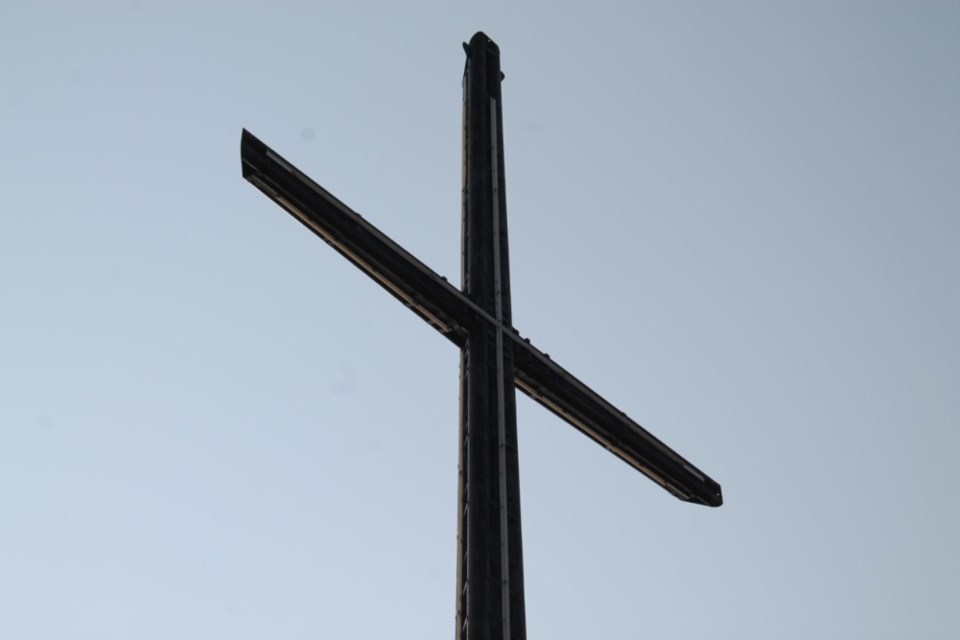When COVID-19 restrictions first hit Ontario (and the rest of the world) last spring, the world was taken by surprise.
In a globally convulsing sense of ‘what do we do now?’ individuals and workplaces who were able to quickly adapt to operating online did so.
That ‘COVID revolution’ included churches.
“When the first state of emergency took place we weren’t online. We weren’t prepared. We had one week to figure out how it all worked. The following Sunday we were online, on Facebook, and have been ever since,” said Benny Kjiersdam, Elim Pentecostal Church pastor, speaking to SooToday.
“We’re improving as we go. We’ve had time over the year,” Kjiersdam chuckled, saying Elim services are available on Facebook, on the church’s website and YouTube.
“This second shutdown (beginning with a provincial government-imposed lockdown Dec. 26, escalating to a state of emergency Jan. 12) was a lot easier than the first. We’re a lot more prepared in regards to Sunday morning. We’ve moved into Zoom meetings for Bible studies and prayer meetings throughout the week. I run board meetings through Zoom. We’ve adjusted to our new reality.”
“We ran with about 50 to 60 people on Sunday morning (within church walls) when the government lifted the first ban on meeting at all (last summer),” Kjiersdam said.
Now, Sunday morning services are live, presented by Kjiersdam from Elim, accompanied by a worship, sound and technology assistant, then uploaded to social media.
Like any true Christian believer, Kjiersdam sees the ability to present services and hold meetings through modern technology, in spite of a pandemic, as a blessing coming out of a curse.
“Nobody wants a pandemic but if this was 20 years ago, what would we have done without the technology we now have in place? As believers, in the midst of adversity, if we keep trusting the Lord and following Him, He’s able to bring something good out of it.”
“We have learned a lot and grown a lot technologically, but also as people. As I pastor this church I see a lot of growth taking place in people’s lives in the midst of it,” Kjiersdam said, noting some who haven’t attended church in a long time are now checking out Elim services online.
“People are longing for fellowship. I think the church is getting stronger. We’re growing healthier (in a spiritual sense). From my perspective, from my dealings with people, I think we’ll be a better church after this is done than we were before.”
Kjiersdam said he wants to see Elim continue with online services if or when the pandemic ends.
“We’re living in a world where, if you’re going to reach people (with Christianity), especially millennials, it’s going to happen online, it’s going to happen through ‘tech.’ We have to be where the people are.”
“Technology, online, you need to use it to its maximum benefit to reach the next generation so that’s definitely where we want to go. I have some good tech guys, younger guys who can work with me. This is the future. You’re always going to need a church building but you may be serving more people outside the church through technology than you are within if you handle it right,” Kjiersdam said.
Kjiersdam and the Elim congregation are not alone in using technology locally.
“With the lockdown (referring to when COVID restrictions first hit in March, 2020) we moved to the Zoom platform because we wanted to have a measure of connection between people. We didn’t want to just produce content for people to view. We wanted there to be some engagement,” said Dan Gabor, Bethany Baptist Church pastor.
“We actually were running both (in person services, with socially distanced seating and a reduced number of congregants, along with concurrent Zoom services, once restrictions were eased in the summer),” Gabor said, adding seniors and those with compromised immune systems in his congregation found virtual services to be of benefit.
“It’s been a relatively easy transition for us to go back to fully online services (with this, the second state of emergency, now in place). Our emphasis is on connection so we have live Zoom, we have discussions and questions and, of course, a visiting time.”
“We’ve had two Sundays already that are exclusively Zoom (since Dec. 26). It’s hard to foresee the end date the way things are going,” Gabor said, estimating 70 devices have been hooked up to Bethany church services, representing 120 to 140 people.
“I’m less concerned about the numbers in the short term than caring for people and making sure they feel connected. It’s hard on people’s mental health. We want to connect people, to give them a sense of something bigger outside their four walls. That’s our goal.”
“We’re trying to be a blessing to each other,” Gabor said.
